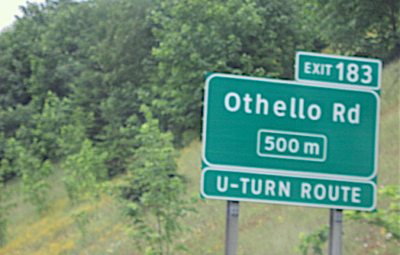1571 Stoking the word engine
Skookum Raven
by Heather Haley
Victoria: Ekstasis Editions, 2021
$23.95 / 9781771713900
Reviewed by Peter Babiak
*
 I always start my first-year literature class by writing “Poetry” on the whiteboard and asking students what words or phrases the word evokes in them. Typically, their responses are in line with the prevailing public opinion of poetry, if there even is such a thing. Most say things like “convoluted”, “pretentious”, “subjective”, “romantic”, “vague”, and even “weird”, though the brave ones have offered “ugh”, “WTF?”, and “pain in the ass”. To them, and probably to most people, poetry is a cauldron of confusing, inconsequential patter. It’s a sentiment best expressed in that classic Tragically Hip song, “Poets”, where Gord Downie sings “Don’t tell me what the poets are doing” and then describes the genre, somewhat ironically given his own lyricism, as “the epitome of vague” and “those Himalayas of the mind”.
I always start my first-year literature class by writing “Poetry” on the whiteboard and asking students what words or phrases the word evokes in them. Typically, their responses are in line with the prevailing public opinion of poetry, if there even is such a thing. Most say things like “convoluted”, “pretentious”, “subjective”, “romantic”, “vague”, and even “weird”, though the brave ones have offered “ugh”, “WTF?”, and “pain in the ass”. To them, and probably to most people, poetry is a cauldron of confusing, inconsequential patter. It’s a sentiment best expressed in that classic Tragically Hip song, “Poets”, where Gord Downie sings “Don’t tell me what the poets are doing” and then describes the genre, somewhat ironically given his own lyricism, as “the epitome of vague” and “those Himalayas of the mind”.
I’m not much of a poetry reader, I tell them. On any given day I’d just as soon skim a magazine, browse a Costco flyer, or even doom-scroll Facebook than read a poem. Still, reading poetry now and then is really good for us. Not because it makes us more cultured or empathic or anything esoteric like that; rather, if poetry basically is, as Northrop Frye once defined it, “language used with greatest possible intensity”, and poets are people “putting words together,” then reading poems can show us a thing or two about the language that we use every day but rarely think about. Sure, some poems are repositories of emotional convolution and metaphysical vagaries, but any genuinely good poem is, at its core, a word engine that gives us the opportunity to slow down our reading enough to notice how meanings are produced by black marks on a white page. Reading poetry can red-pill us, I’ll say, referring to that scene from The Matrix where Morpheus gives Neo that iconic choice of the blue or the red one. Don’t bother with it if you want to stay blissfully unaware of how the code of language scaffolds our world, but dive right in if you can handle the unsettling truth that much of what we consider “real”— from a thought trending in the mind to the substance of romantic relationships or friendships, even our understanding of the past and sense of the future—is manufactured by that code.

One poem I’ve regularly enlisted to show how this happens is by Vancouver media artist, musician, and poet, Heather Haley. It’s called “Voracious”, a sensual, sybaritic poem about desire, plain and simple. Nothing can be more profoundly human than the universal feeling of wanting or craving something or someone, the elemental fact of biology that exists in a physical world separate from words. And yet, even desire is, as anybody who has ever tried to make sense of it by expressing it, not a simple force like gravity that just exists in some preverbal organic world but is animated and aroused only in the ravelling and unravelling work of language. I was happy to find this poem reprinted in Haley’s recent collection, Skookum Raven, a lithe and well-toned book where Haley renders an array of topics — social, political, environmental and, of course, intensely personal — in vigorous language that shows us that poetry isn’t just an expression of meaning but a celebration of the word engine that builds meaning.

Like most good poetry collections, Skookum Raven will appeal to any reader willing to lend it some of their time, but there’s a distinct BC tenor here and this specificity, which Haley’s language mounts to universal significance, gives credence to Pound’s old claim that poetry is “news that stays news”. In “The Last Ping”, for example, a two-stanza poem about one—and all—of those missing girls and women we’ve heard so much about, we read, “Her cell phone may be dead, / last ping traced – pinpointed in fact — / to here. Right here.” The content is catastrophic, of course, but we don’t need a poem to remind us of this, and Haley knows this. Her lines subtly hatch something much more incriminating. The metaphor of the “dead” phone is recast by the emphatic repetition of “here” with that inconspicuous adjective in front of it, which doesn’t just close the case but puts responsibility for the femicide against Indigenous women uncomfortably close to us, and I don’t just mean geographically.

Or take “Terminal Labour”, a work that opens with three lines that yields a fresh image for the province’s environmental psyche: “Murderous pipe snakes / Through the Rockies, / Ripping our century in two.” Haley couldn’t be clearer on what she thinks of pipelines bringing Alberta commodities to the coast for shipping. There’s nothing new about her evocative homicidal metaphor, either. What’s remarkable, though, is how she produces an ever-so-slight reconsideration of pipelines as divisive historical objects that don’t just rip land apart but also, somehow, “our century”, too. A century ripped “in two” makes no literal sense, but its her ginger assembly of words into unlikely pairings that provide a different vocabulary with which to think through the effect of that pipeline crews are today installing through the mountains near places with lyrical names like Juliet Bridge and Othello Road. It’s here, in these fresh word engines and piquant phrasings for standard, even mundane, observations about life, that her work is most memorable.

Though the local colour angle is always important in Skookum Raven. Haley’s strength as a poet, though, is her decisively flexed cadence that builds up a rhythmic, musky sense and sensuality in so much of her work, particularly in those poems that aim to defamiliarize ordinary experiences by framing them in extraordinary language, which is what all poets who matter have been doing since Williams’ “The Red Wheel Barrow”. Take “Shroom Hunt”, another distinctly BC lyric. The poem turns on a voluptuous assembly of nouns and adjectives, with lines like “Rotting wood, dung, conceal / Earth tongues. Fleshy to waxy, / Roundish to lumpy / Puffballs,” but it’s that lubricious noun phrase, “Earth tongues”, which really should be read as a verb, that draws attention to itself, a tactile reminder that all the meanings we manufacture with our words, even the most carnal, are rooted in the natural world we inhabit but that world is accessible to us only through words. There’s a similar primordial thrust in “Pacific Time,” where in reference to Howe Sound she writes “Currents obviate” — the pairing of the familiar noun with the unusual verb is textbook defamiliarization — and closes with “Forget restitution. / Leave the old scow / To rot on the alluvial plains”. The supple consonance and near-rhyme in those two last words elevate the simple fact of a boat decomposing in water into something that has, framed as it is in this poet’s considerate language, a much more memorable, even supple meaning.
The same applies to those poems where ordinary experience is a metaphor for the speaker’s idiosyncratic perceptions, even when we have no clue about their broader context, which I suspect is often the case when we read poetry. In many of them — “Wild West/ Coast” and “The Junco Does not Reflect”, for example — Haley presents us with an occasion to think differently about ordinary things by housing them in language that’s engineered to recalibrate our understanding of them, if even only in a small way. Each of her poems express the contours of what we’d call, imprecisely, an idea or feeling, but the talent of her lyricism lay in the fact that these ideas or feelings are never written about as if they’re just inside all of us waiting for words to express them but are entirely dependent on those words. And not everybody can put together words in a way that animate those imprecise things into ideas and feelings.

In “Field Trip,” Haley’s speaker presents another common experience — being in high school — but frames it in language that, with the galvanizing work of hindsight, fashions it into a memory more redolent than the actual experience itself, which is what memory usually does. “Cocoons, hives, shells, Snoozing in biology class,” she writes, but then inflects those first three synonyms for “snoozing” students with the couplet “Oblivious to organisms / Living in, on, and through us.” It’s a simple reminder that organic matter isn’t just the object of study but the observing subjects, too. The speaker in “Insomnia,” where a more objective voice addresses a third-person “she”, notices that “Rain pelts the window, / Mothra softly dying / To reach lamplight, / To deliver sleep”, with the double sense of “dying” as both the verb that signifies death but also desire, although her grammar indicates that the two might really be the same thing. In “The Lapsed Catholic Does not Confess”, a poem that deals with the conventional literary motif of the birth secret, the speaker says “Ma” “raised me/ On clever jive, My conception a farce, / Life a fiction, / Let the need to know go / She repeated, as if she knew Buddha”. Whether or not this secret is part of her real-life story is certainly intriguing, but the revelation of personal information isn’t ever a good enough reason to write poetry, no more than the pursuit of it is reason enough to read it, certainly not as important as its linguistic insights. This memorable insight in this case is the superbly crafted inconspicuous moment in the poem where the speaker says suggests life is “a fiction” brimming with “clever jive”.
Haley is a lover of words, of the “clever jive” we erect with them, which is probably the only obligatory requirement for writing good poetry. She has a lot to say about different experiences, some of which readers will relate to more than others because some of them seem so personal that the context is mysterious unless you happen to know her in more than a Facebook friend sort of way, which I don’t. The narrative in “Flesh Pot”, the delightfully suggestive title of which doesn’t really underscore its melancholic gist, is summarized ordinarily as “Pain prosaic, strife fuelling ripeness, / Gauntlets passed through swiftly / Until the day we drop”. There’s something intensely inward going on in this little word engine, something that leaves us with the impression that the speaker wants to be understood but doesn’t want to give us the prosaic language to make that desire direct. Even “Extinction”, a poem about an absent father, which invokes that theme of the birth secret that periodically looms over this collection, delivers something worthwhile from minimal disclosure: “first you lose / The teat, then Dad / May skedaddle, disappear / Like snot into a rag.” At times, all poetry comes down to a perfectly positioned simile. Granted, it may not be as perfect as Eliot’s “When the evening is spread out against the sky / Like a patient etherized upon a table”, but there’s nonetheless a sublimity in this ironically fertile body of word shrapnel that detonates ordinary thinking by ravelling it in unfamiliar language. You can’t ask more from poetry.
Mostly, Haley’s love of language is moved and motivated by the incandescent and sometimes pummelling thrums of desire and relationships in all their variations — unrequited, consummated, consummated but unrequited, requited but unhappy, not quite happy but not quite sad, and so on — since these universals are often both the cause and antidote to our most poignant or poem-worthy complications in life. Sometimes these poems touch on a romantic spirit which seems to have nothing to do with language. In “Every Hand Job”, Haley’s speaker takes on the sexuality of pretty much everybody: “Your escapades, my escapades. / your sex, my sex. / I lick, suck, bang for you / Whenever you can’t come.” In “I Saw You”, she offers a verbal riff on the universal experience of fleeting attractions where the proverbial voice crying in the wilderness that we all are announces itself to those whom it secretly watches: “Tatooed blonde on the bus to Horseshoe Bay. / Criminal. I like you. A lot. / Teacher in Surrey, living in yVan. …” and so on. In her other poems, we encounter lines like “fires set at night/ to divert shame”, “Gutterized beau/ replete with affection disorder”, or “Serial monogamy, serial frustration. No getting off this ride.” In each, the will to self-expression is outdone by a meditation on expression itself, and this knack with basic word craft prohibits any idealized reading of her as yet another romantic convolutionist who simply wants to announce herself in words. We don’t read poetry just to overhear someone else’s thoughts — that’s the stuff of social media — and we shouldn’t ever read it as a guessing game where we onerously work our way through thickets of abstraction and imprecision. No, we read it to witness how our reality is shaped and animated in words.
In the case of “Voracious”, the poem which to me thematically anchor Haley’s collection, my students tended to want to think it was about love and romance, because that’s what young readers weened on pop culture but very little reading tend to think. Some years ago, I was so frustrated by their idealizations of this poem that I sent Haley a Facebook message and asked if she happened to have a voice recording of the text I could play in class to set them straight. She sent one and, you know, it worked — at least on me, and even prompted me to say in an essay on Vancouver poetry that Haley has “the sexiest voice in all of poetry”, which I think she does. Hearing her read “Voracious” — a decidedly more sensuous version of which, paired with a convulsive, throbbing score, I recently found on Sound.cloud via her website — helps us make sense of A.E. Housman’s old claim that poetry “is not the thing said but a way of saying it.” To put this differently, it reminds us that, beyond any mysterious or metaphysical reason, poetry exists first and foremost to show itself as a structure made of words — with form, rhythm, meter, diction, and all those language things—and that good poets are dedicated word workers with a knack for pairing previously unpaired words, assembling and reassembling phrases, altering metaphors or inventing new ones, to show us that so much of what we think of as real is the effect of language.
*

Born and raised in the GTA, Peter Babiak now lives and writes in East Vancouver. He teaches linguistics, composition, and English Lit at Langara College, and writes for subTerrain magazine. His commentary and creative nonfiction has been nominated for both BC and national magazine awards and his collection of essays — Garage Criticism: Cultural Missives in an Age of Distraction, published by Anvil Press in 2016 — was a Montaigne Medal finalist and an Honourable Mention in the Culture Category of the Eric Hoffer Awards. His work was selected for The Best Canadian Essays (Tightrope Books) both in 2017 and 2018. He has a dog, a cat, a garden, and an alluring garage. Editor’s note: Peter Babiak has reviewed books by Trevor Newland, Douglas Coupland, Clint Burnham, Stan Rogal, Jamie Lamb, and Gilmour Walker, and his book Garage Criticism was reviewed by Ginny Ratsoy for The British Columbia Review.
*
The British Columbia Review
Publisher and Editor: Richard Mackie
Formerly The Ormsby Review, The British Columbia Review is an on-line journal service for BC writers and readers. The Advisory Board consists of Jean Barman, Wade Davis, Robin Fisher, Cole Harris, Hugh Johnston, Kathy Mezei, Patricia Roy, Maria Tippett, and Graeme Wynn. Provincial Government Patron (since September 2018): Creative BC. Honorary Patron: Yosef Wosk. Scholarly Patron: SFU Graduate Liberal Studies.
“Only connect.” – E.M. Forster
2 comments on “1571 Stoking the word engine”
Fine review, Peter (fellow Langaran). I often started my own Langara poetry classes with George Bowering’s “Poem for High School Anthologies” (poetry, GB always rightly said, being the worst taught subject in school). I asked the ball cap boys in the back row to read the closing lines (in their heads) ‘real fast’. They’d do this & chortle a bit, leaving me the opportunity to open a discussion about the element of “surprise” in poetry where language pushes the envelope even if just a tad.